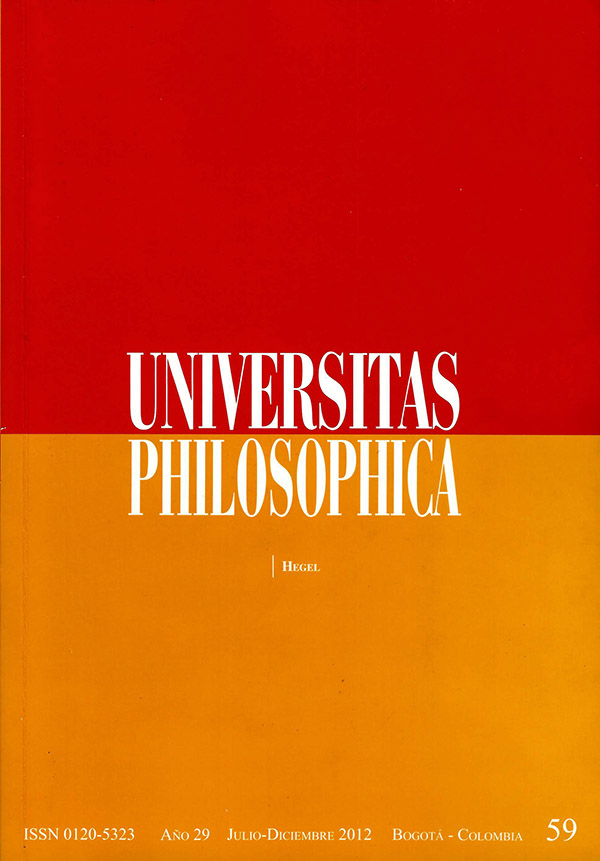Abstract
The paper attempts to introduce a possible reading of Hegel’s notion of forgiveness in the light of his reflections in the Spirit of Christianity and its Fate and in the Phenomenology of Spirit. Traditional readings of the notion of forgiveness tend to address the subject as a relationship between two. The attempt here, however, will be to introduce Hegel’s notion of forgiveness in relationship to his reflections on being in common and the wounds that lie in its grounds. Following this thread, forgiveness will be understood as a decision or an act that addresses both a community’s claim for memory and the urgency of a new beginning as an attempt to restore life in common. The paper will also suggest a possible dialogue between Hegel’s thought and contemporary reflections on politics of transition.
This journal is registered under a Creative Commons Attribution 4.0 International Public License. Thus, this work may be reproduced, distributed, and publicly shared in digital format, as long as the names of the authors and Pontificia Universidad Javeriana are acknowledged. Others are allowed to quote, adapt, transform, auto-archive, republish, and create based on this material, for any purpose (even commercial ones), provided the authorship is duly acknowledged, a link to the original work is provided, and it is specified if changes have been made. Pontificia Universidad Javeriana does not hold the rights of published works and the authors are solely responsible for the contents of their works; they keep the moral, intellectual, privacy, and publicity rights.
Approving the intervention of the work (review, copy-editing, translation, layout) and the following outreach, are granted through an use license and not through an assignment of rights. This means the journal and Pontificia Universidad Javeriana cannot be held responsible for any ethical malpractice by the authors. As a consequence of the protection granted by the use license, the journal is not required to publish recantations or modify information already published, unless the errata stems from the editorial management process. Publishing contents in this journal does not generate royalties for contributors.


